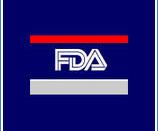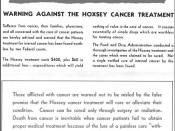When we place our order at a fast food place, we seldom think about what's in our food. Not once do we stop and ask how the meat was processed, or wonder if it had ever been exposed to unsanitary conditions. We are confident we are receiving the best quality food our money can buy. In the 1900s, however, sanitation in the workplace was poor. The American public was blind to the monstrosities behind food and drug industries. Little was known about the measures taken to ensure healthy foods or valid medicines. A shocking novel written in 1906, however, spurred congress to change the course of history. In this essay, I will explore the heinousness described in Upton Sinclair's The Jungle and illustrate how this novel paved the way towards strict regulation and reform in America's corrupt industries.
The Jungle exposed the unknown horros of the meat packing industry to the public.
Upton Sinclair spent seven weeks in the stockyards district of Chicago gathering background information for his story. Sinclair chose "Packingtown" he explained, because "I knew this was a place where modern commercials forces held complete sway" (quoted in Braeman, 44). In The Jungle, he illustrates the routine of the packers, the lack of government inspection and the unsanitary conditions of the slaughterhouses. According to the Jungle, "It was too dark in these storage places to see well, but a man could run his hand over these piles of meat and sweep handfuls of dried dung of rats. These rats were nuisances and the packers would put poison bread out for them, they would die, and then rats, bread, and meat would go into the hoppers together"(163). This passage indicates the carelessness of the industry. Sanitation was overlooked, and people unknowingly ate contaminated substances. Braeman recounts, for example, "hogs...


